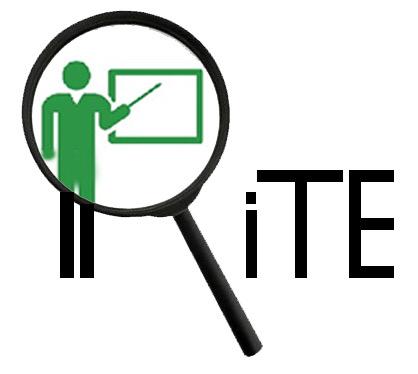Welcome to the RiTE project!
The aim of the RiTE-project is to promote and facilitate (student) teachers to create an evidenceinformed
teaching practice in science, technology, engineering and mathematics (STEM) education.
In this project, (student) teachers are stimulated to use evidence from educational and scientific
research to experiment and innovate their teaching and learning processes. With evidence-informed
teaching practices we allude to the use of current relevant research to plan lessons. This project
responds to two major challenges of our societies on a European dimension:
- It addresses the current challenge of evidence-informed decision-making in an age where pieces of evidence are increasingly ignored by policy makers world-wide and the amount of information is increasingly complex leading to initiatives such as EU4FACTS;
- It addresses the need that the European Commission has recently put down regarding the strengthening of initial teacher education (ITE) and continuous professional development (CPD) (EC, 2015).
We perceive educational settings as decisive for educating later decision-makers for evidence-informed policies who need role models in their teachers. Consequently, we endeavour to apply the strategies of evidence-informed policy making (Breckon & Dodson, 2016) to ITE-settings. who have a shared interest in research in teacher education and teaching practice. During the RiTE-project, (student) teachers are stimulated to use scientific evidence from educational and science research to experiment and innovate their teaching and learning processes.
In phase I all partners will use their specific teacher training context to conduct case studies in which
materials are designed to integrate evidence-informed practices for cohorts of at least 15 student
teachers per partner. The intended outcome is that the cohorts of students will develop more solid
skills to integrate research in their current and future teaching practices (research literacy). The
strategies and developed resources will be presented in five different case studies, which will serve
as learning resources for the second phase. In phase II at least five teachers from each institute (who were students the year before) will be monitored and supported in their first year of in-service teaching
in maintaining their evidenceinformed teaching practices. One of the support structures will consist of the materials created in the first phase. Using a multi-method approach with log-files, focus groups and interviews, the five
locations will analyse the collected data to come to useful recommendations for other ITE institutions and other organisations that would like to get more evidence into their teaching practices. The support structure developed in
the RiTE project will consist of three components:
- A multimedia website including five case studies (movies, articles, resources), one for each RiTE
partner, that presents how they designed a teaching and learning trajectory in which they integrated
evidence-informed practices. The digital open and accessible environment contains tools and
equipment to organize actions aiming to support teachers in searching and translating scientific
information to use in their teaching practice using instruments for preparation and evaluation, lesson study, or individual action research, to innovate their teaching practice. (O1) - A report with the empirical validated support structure and recommendations of participating teachers and teacher educators about how they managed to maintain their research-informed perspective. This report will be offered for publication and is about the insights into the way (student) teachers meaningfully search for, read, interpret, and translate scientific information and evidence from educational and science research when conducting small scale experiments, and into what factors in the school environment influence teachers in creating and developing a evidence-informed teaching practice. The information in the report forms the input for other publications and conference contributions to disseminate the results. (O2)
- A European Support Network of educational researchers, teacher trainers and teachers in which literature, lesson materials, expertise, and experiences are shared regarding creating and embedding an evidence-informed practice. (O3)
After the EU funding ends the universities will be able to continue to use the results, intellectual
outputs, products and materials in the courses of their respective curriculum of their teacher training
programmes. The network will be incorporated and further extended within the DUDOCnetwork
(
www.dudocnetwerk.nl), the EAPRIL’s cloud communities, and embedded into the Scientix
community. Through these platforms and communities, the results and intellectual outputs of this
project are maintained and disseminated.
Granted for a project with multiple beneficiaries under the ERASMUS+ Programme
Agreement number: 2019-1-NL01-KA203-060339 from 1-9-2019 until 31-12-2022.
